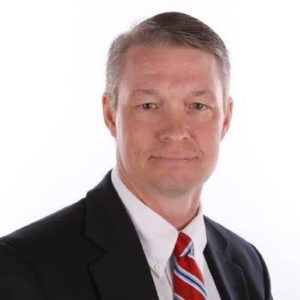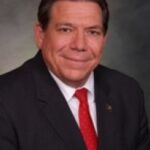SLOAN | Predictably, Denver mayoral contenders lean left and lefter


Republicans in Denver may qualify for endangered species status; but they do exist here and there and are not about to let the city’s upcoming mayoral contest go by without appropriate attention. It was in that spirit that earlier this week the Lincoln Club of Colorado and the Denver Republican Party jointly hosted a forum for the top four viable candidates for that post, incumbent Mayor Michael Hancock – former state Sen. Penfield Tate, Lisa Calderón, and Jamie Giellis.
It was a remarkably civil affair, the only blemish being an outburst from serial outlier candidate Stephan Evans – who calls himself “Chairman Seku” – as he complained in a profanity-laced rant about not being included in the forum. To avoid wasting everybody’s time, only the top four leading and viable candidates were invited to participate, of which Mr. Evans is neither. Members of the Denver Police Department ushered him out. The spectacle was about what one might expect from someone who calls himself Chairman Seku.
But aside from that momentary distraction, the event was rather pleasant and informative. The moderator, the inestimable Steffan Tubbs, was professional, courteous and fair, and kept things moving along at the appropriate clip. All four candidates behaved themselves, and answered the proffered questions thoughtfully and ably, without a whole lot in the way of verbal sleight of hand.
There was, of course, no mistaking any of the four as a dedicated student of Milton Friedman. Denver, like most cities, hews leftward, and accordingly the race for its mayorship is a contest among Democrats of one intensity or another. The responses provided Monday evening were not lockstep, and certainly revealed the individual differences in background and approach possessed by each candidate; but they also revealed a rather consistent cleaving to some of the more common liberal difficulties, including an underlying mistrust of police, a reluctance to distinguish between legal and illegal immigration, and an abiding faith in the illusion that government is endowed with the competence and ability to solve problems like crime, poverty, and homelessness.
The forum questions themselves were illuminating. Among my favorites: “If you had a magic wand, and with a wave of it could fix five contiguous miles of roadway, which roadway would you fix?” (The answers were Colorado Boulevard, Federal, Broadway and Lincoln.) And, “One of you will become mayor. Proposition 300 – the ‘right to rest’ law – may pass. When homeless encampments begin to fill your local elementary playground, tell me what you will tell the moms and dads that will need to walk by them to get their children to school?” (This answer was the most prone to obfuscation and was generally a variation of “that wouldn’t be an issue because I will fix the homeless problem before it becomes one!”)
The duration of events such as this being fixed, time fails to permit examination of every issue of interest; in that vein, I offer herewith a few additional inquiries one may wish to pursue:
1. Given the experience of New York, which in the 1990’s under Mayor Giuliani successfully dealt with the city’s crime problem primarily through the application of James Wilson’s “broken windows” theory, do you see an avenue through which Denver could apply those lessons in combating our own crime issues?
2. Considering how crucial the oil and gas industry is to the economy of Denver, i.e. the preponderance of downtown businesses which are directly or indirectly attached to the industry, how do you feel about SB 181?
3. Recent ballot initiatives have resulted in Denver’s sales and other taxes continuing to creep upwards; does that, coupled with increasing mandates (“green roofs” etc.), give you cause for concern? Do you see people and capital moving to Colorado Springs? Or other regional cities in other states?
4. Do you have a plan to realistically handle the parking situation in downtown, or will you cling to the fantasy that artificially reducing parking availability will dramatically change driving behavior?
In any case, the four Denver mayoral candidates are to be honored for appearing on a forum organized by a constituency that is well outside their normal range of political comfort. It was well worth doing. As Penfield Tate said at one point, I’m sure not meaning it as a slight against urban folk, “city dwellers expect collective solutions.” Insofar as it is unlikely that anything will, in the near term, disavow them of that superstition, it falls on the city’s conservative community, modest as it may be, be offer alternatives.
Kelly Sloan is a political and public affairs consultant and recovering journalist based in Denver. He is also an energy and environmental policy fellow at Centennial Institute.













